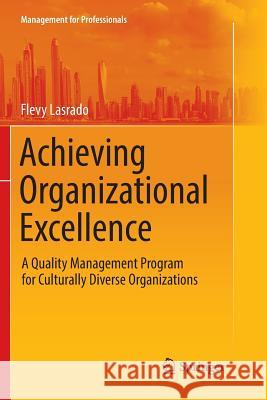Achieving Organizational Excellence: A Quality Management Program for Culturally Diverse Organizations » książka
topmenu
Achieving Organizational Excellence: A Quality Management Program for Culturally Diverse Organizations
ISBN-13: 9783030099312 / Angielski / Miękka / 2018 / 193 str.
Kategorie:
Kategorie BISAC:
Wydawca:
Springer
Seria wydawnicza:
Język:
Angielski
ISBN-13:
9783030099312
Rok wydania:
2018
Dostępne języki:
Numer serii:
000424298
Ilość stron:
193
Waga:
0.29 kg
Wymiary:
23.39 x 15.6 x 1.09
Oprawa:
Miękka
Dodatkowe informacje:
Wydanie ilustrowane











